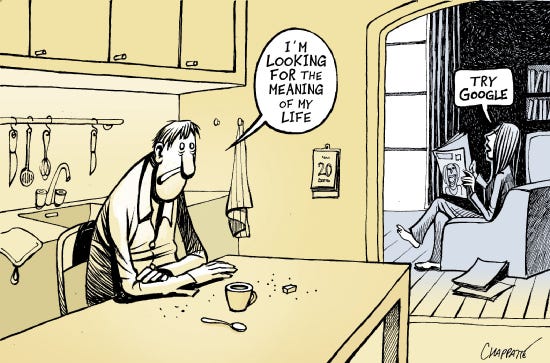Dear all,
I have two slightly longer posts in the pipeline, but I realized that I would not be able to finish them before the holidays and therefore decided to turn to ChatGPT for help.
The question I asked was “how do we prevent climate change?” Here is the answer:
Preventing climate change requires taking actions to reduce the emission of greenhouse gases, which are the main drivers of global warming. Some of the ways we can do this include:
Transitioning to clean, renewable energy sources: Burning fossil fuels like coal, oil, and natural gas releases large amounts of carbon dioxide and other greenhouse gases into the atmosphere. By shifting to clean energy sources like solar, wind, and hydroelectric power, we can greatly reduce our greenhouse gas emissions.
Improving energy efficiency: Using energy more efficiently in our homes, buildings, and industries can help reduce the amount of energy we need, and therefore the amount of greenhouse gases we emit. This can be achieved through measures such as using energy-efficient appliances and building materials, and implementing energy-saving building design practices.
Planting trees and other vegetation: Trees absorb carbon dioxide from the atmosphere and store it in their wood, leaves, and roots. Planting trees and other vegetation can help remove carbon dioxide from the air, offsetting some of the greenhouse gas emissions caused by human activities.
Reducing deforestation and promoting reforestation: Deforestation, or the removal of forests, is a major source of greenhouse gas emissions. Protecting and restoring forests can help absorb and store carbon dioxide, offsetting some of the emissions caused by human activities.
Promoting sustainable agriculture and land use practices: Many agricultural and land use practices, such as the use of synthetic fertilizers and the conversion of natural habitats into cropland or pasture, can contribute to greenhouse gas emissions. We can reduce these emissions by adopting sustainable practices, such as using organic fertilizers and planting cover crops.
Encouraging individual and collective action: Individual actions, such as driving a fuel-efficient car or using public transportation, can also help reduce greenhouse gas emissions. Collective action, such as supporting politicians who prioritize climate action, can also help drive change at a larger scale.
In other words, nothing new. ChatGPT synthesizes a lot of available information and returns it in well-formed sentences. The response is not worse than that provided by many “experts” in the field, but it ultimately fails to answer the question. Note the conspicuous absence of the word Degrowth.
The danger from computers is not that they will eventually get as smart as humans, but we will meanwhile agree to meet them halfway.
Bernhard Avishai
The greatest danger from Machine Learning (ML) and Artificial Intelligence (AI) is that it threatens to replace many people — teachers, authors, researchers, and journalists — whose job is to synthesize and communicate information and facts. This is problematic, as progress has always been driven by the few people who connect the dots differently and come up with new ideas that have not been written down before. These people will be missing in a world where everyone simply consumes pre-processed information.
Suppose you train 100 children to play the violin. Some will achieve a decent level of proficiency, a small number will become good professional musicians, and a tiny fraction will become virtuosos and musical innovators. The problem is that unless you train the 100 children, you will never find the virtuoso. The same is true in science.
I believe Mr. Avishai was overly optimistic. The more effort we spend on training artificial neural networks, the fewer chances there will be to train the neural networks already available in our brains. The human body has a remarkable ability to switch off parts that are not used. If we stop working out, our muscles will wither. Likewise, our brain requires constant mental workouts to stay fit.
Here is a delightful movie that I recommend to anyone interested in how humans interact with the world around them. It is a couple of years old, but it still raises many important questions about AI.
I wish all my subscribers relaxing and stimulating holidays and look forward to interacting with you next year.
Yours truly,
Henrik
PS. If you are located close to Zurich, there is an excellent opportunity to meet in person in March 2023 at www.ost.ch/planetcritical.
Quick update: Here is an article from the WEF explaining how ChatGPT works and whether it could be the new trend in journalism and teaching.





AI pollution is a serious problem. The models have run out of original content to train on and now train on their own rehashed, unoriginal output. It's a race to the bottom.
I believe Yuval will be ranting about this in his latest work, "Nexus", pointing out that we incorrectly assumed good information rises to the top, but the sad fact is that junk information drowns out the good stuff and makes it sink to the bottom.
Great article Henrick, very thought provoking. Needs more thought, but maybe the AI can reduce some of the overwhelm but without the human analysis?